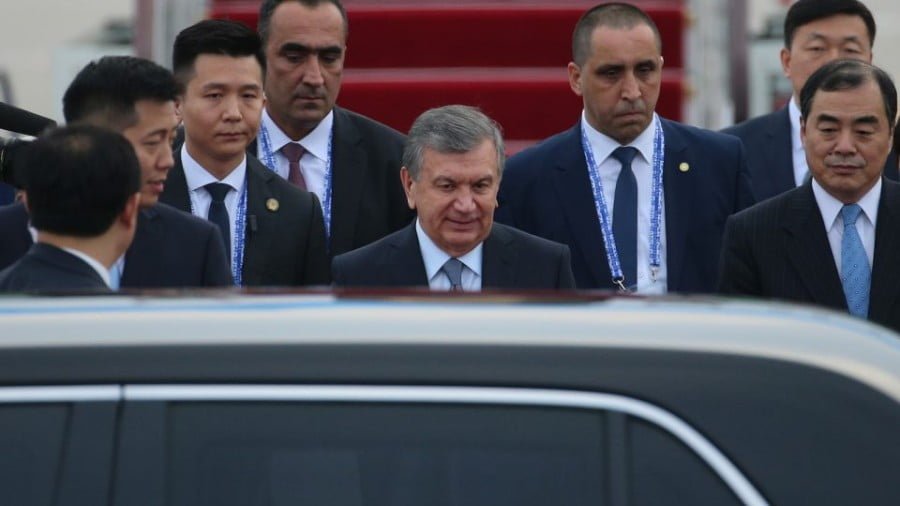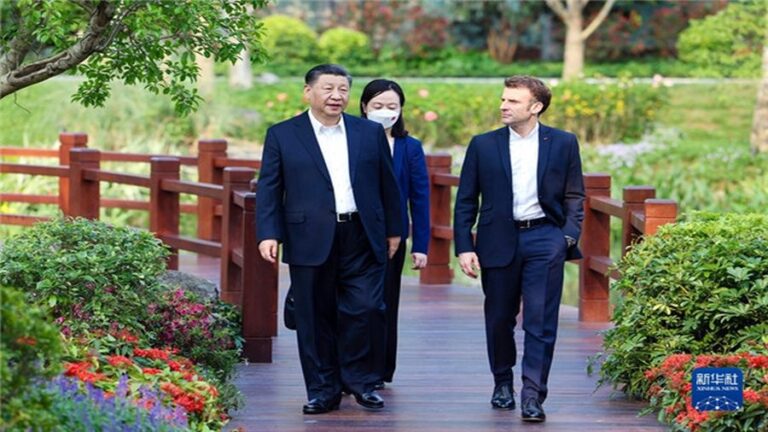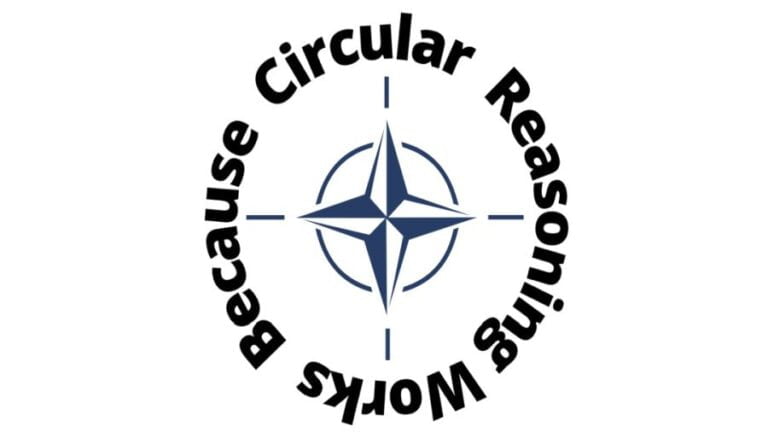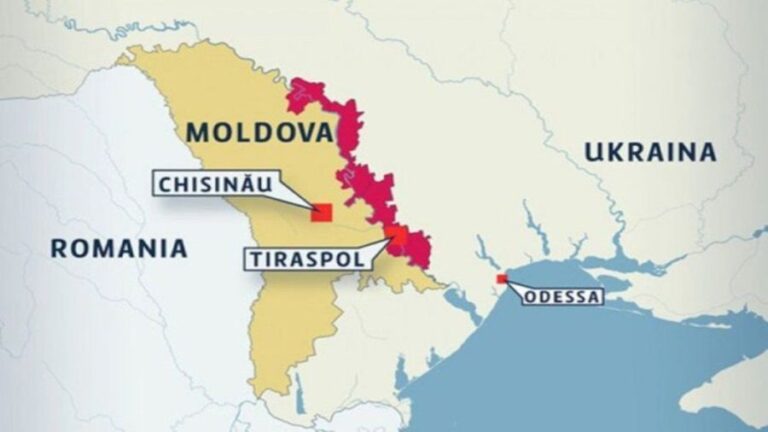Shanghai Summit: Is It Really a Suitcase Without a Handle?
A confluence of regional and international factors makes the 18th summit meeting of the Shanghai Cooperation Organization (SCO) this weekend in Qingdao an event of special interest. The summit has an added meaning insofar as for the first time the two newly inducted member states India and Pakistan will be taking their place at the high table. However, paradoxically, the reality is that the United States, which loved to strangle the SCO in its cradle, may be unwittingly contributing to a new verve that we may witness at Qingdao.
Historically, the main reason why the SCO remained far below potential was that Russia and China have been pulling in different directions. The result was stunted growth. A top Russian think tanker Andrey Kortunov wrote recently: “The SCO has obviously entered adulthood, but it has not yet emerged as a fully mature international institution. Furthermore, it runs the risk of becoming an ‘eternal teenager’, with its numerous transition problems and frequent changes in hobbies and attachments, but without any particular occupation or specific purpose in life.”
The acerbic comment is not without basis. But as with any colorful metaphor, it is an exaggeration placed on a kernel of truth. Kortunov admitted that Russia and China had different priorities. While China was focused on the Central Asian region, Russia expected the SCO to wade into major issues of concern to Moscow in regional security. Some bitterness developed in Moscow when organizers showed reluctance to get entangled with controversial issues such as Chechnya and Russia’s conflict with Georgia. Then the bitterness turned into rancor when the SCO failed to endorse Russia’s annexation of Crimea in 2014.
Meanwhile, on Afghanistan, both China and Russia bypassed the SCO, since each had specific interests to pursue and had own methods of leveraging the situation to its advantage. It was the perfect recipe for SCO inaction. Again, while China placed emphasis on the economic dimension of SCO cooperation, it ran into headwinds when Moscow cold-shouldered Beijing’s push for an SCO free-trade zone. Moscow feared that an FTA would lead to China’s possible economic expansion in Eurasia. Fundamentally, Russia is lukewarm about the idea of the SCO spearheading regional integration. Its core agenda is that the Moscow-led Eurasian Economic Union (EEU) ought to be the key driver of Eurasian integration so that Moscow pilots the process.
As Kortunov noted: “China was eventually forced to shift the focus of its economic strategy in Eurasia from the SCO to the Belt and Road Initiative (BRI), and the free-trade zone idea is hardly ever mentioned in the latest SCO documents.” But even here, Russia began stalling, as its comfort level with the BRI is low. Russia would rather do cherry picking with BRI.
Therefore, how far Russia and China have been pushed into each other’s embrace due to the US stepping up its containment strategies in the recent months will remain a major point of interest while assessing the outcome of the Qingdao summit opening tomorrow. Generally speaking, China shows greater eagerness than Russia to create gravitas for the SCO. But the US may be goading Russia forward, ironically, by steadily tightening the screws on Russia.
Apart from the western sanctions against Russia, curiously, the SCO summit is coinciding with a large-scale US-led military exercise under NATO’s umbrella, Saber-Strike 2018, involving 18,000 troops across training areas in Poland, Latvia, Lithuania and Estonia, right on Russia’s doorstep. The highlight of the exercise will be air assault landings to hone the skills for offensive operations. Two more US-led NATO exercises are due on Russia’s borders this year – Trident Juncture, involving 35,000 troops in October and Anakonda in Poland in November. The latter will involve 100,000 troops, 5,000 vehicles, 150 aircraft and 45 warships. The scale is mind-boggling. Indeed, exactly a month after this weekend’s meeting, NATO plans to hold a summit in Brussels on July 11-12 with an agenda dominated by plans to contain Russia.
New factors have crept in
Meanwhile, even if Russia goes the extra mile to woo China to transform the SCO into the “NATO of the East” (which is highly unlikely), new factors have crept in and a consensus may be difficult to reach. The US also created a new format with the five Central Asian states known as “C5+1”. Uzbekistan, which has always been keen to hold the American hand, is taking a lead role under President Shavkat Mirziyoyev. Uzbekistan has always been the joker in the Central Asian pack. It is averse to regional integration (except under its leadership). But without it, regional integration is a non-starter. President Trump did a smart thing recently by inviting Mirziyoyev to the White House. Mirziyoyev’s performance at Qingdao will come under scrutiny.
Yet another geopolitical reality is that the admission of India and Pakistan will radically change the strategic and political balance within the SCO. The good part, however, is that neither country has attempted so far to burden the organization with their myriad disputes and differences. On the contrary, they seem willing to settle into an inchoate co-habitation under the Shanghai umbrella. Their participation in the SCO’s bi-annual anti-terror drill in August in Russia’s Urals is a good start. Earlier, they attended the SCO gathering of defense ministers in Beijing in April.
At least when it comes to China, New Delhi intends to use the SCO forums for intensifying its strategic communication with Beijing. Arguably, SCO forums may witness growing India-Pakistan interaction as well eventually, once the elections in Pakistan in July are over. If China-India strategic communication gains traction, SCO becomes a key forum despite the Russian foot-dragging.
Is the Russian view tenable that India and Pakistan’s membership has transformed the SCO into a “suitcase without a handle: something too unwieldy to carry but too precious to abandon”? It is both uncharitable and unwarranted criticism. The SCO membership may be the best that ever happened to India and Pakistan for sorting out their troubled relationship.
The SCO faces no institutional competition in South Asia or Central Asia. Russia may boast that the Collective Security Treaty Organization is the lord and master of Eurasia and a substitute for the SCO. But in reality, the CSTO shrinks to a big zero sans Russia; it is like a child that needs constant mentoring. The SCO, on the contrary, is a much sought-after teenager. Some 30 countries are associated with it already. The SCO’s main disability has been Russia’s ambivalence. Moscow can help galvanize it instead of politicking with its future.







